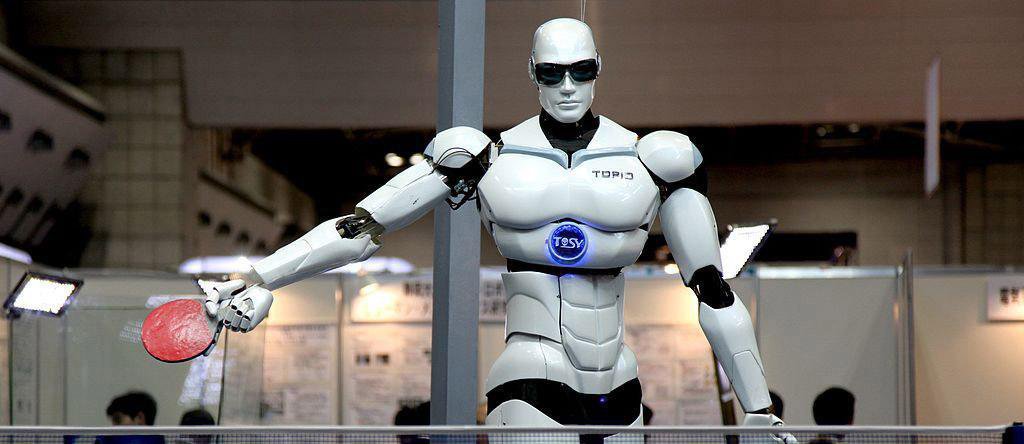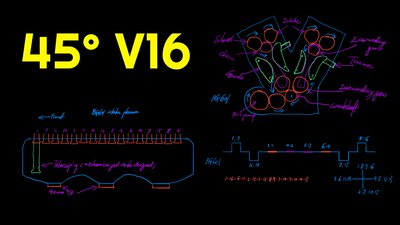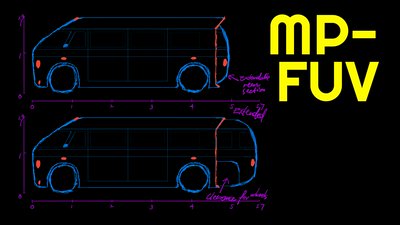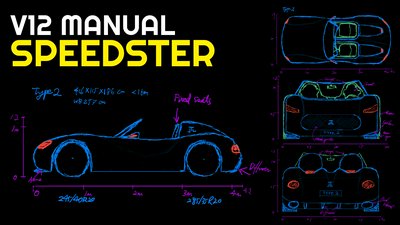techParis
Should Our Creation Look Like Us?
The science fiction and, more notably, cyberpunk genres often take it for granted that androids should look like us. DrJLT argues that perhaps we are better ...
Published by Dr Jiulin Teng on 26 Feb 2020 · Updated on 25 Jul 2021

We like to make stuffs. It's a delight like no other to create something. We erect monuments and grand palaces hoping they'll stand long after we do no longer. We sculpt and paint hoping to capture and eternalize the spirit, the soul of something or someone. We take photographs and make films not just to keep memory but in hope of creating memory. We build machines to make more stuffs and more importantly for the pride in improving the way we do so. In other words, we love our creations because they're an extension of ourselves, they are us in forms beyond our flesh. Unsurprisingly, then, when we give robots intelligence that's worthy of our names, we'd consider giving them our image as well.
Functional and ethical concerns warrant contemplation. Function-wise, where will they be drawing energy or, more fundamentally, will they be flesh and blood? Nature has worked wonders in creating some of the most efficient life forms on earth, yet all its creations rely on biochemical reactions that till this day we aren't fully learned in. In contrast, almost none that we have created shares the same basis. For our creations, we usually rely on much simpler chemical reactions (such as combustion) and frequently resort to electricity, since the discovery of which our productivity has shot up. If we finally break with this tradition and manage to create "androids" that also eat, sleep, and defecate, it'd be a different scenario than with robots powered by electricity.
Some of us pride in efficiency, while others care more about style. For the former, the complexity and unpredictability of flesh and blood regardless of the level of genetic engineering make the "improved" versions of ourselves impractical. For the latter, androids that are indistinguishable with ourselves may give them more pride — as in the ultimate fulfilment of creating the creator. After all, life isn't the meant to be a never-ending pursuit of efficiency, for absolute efficiency exists only in inexistence. If we merely give our intelligence to newer versions of machines that we already have, however, the style argument would be much weaker. We'd then be optimizing each to their designed function.
Ethics is more intricate and subjective if we are to create androids that look and live just like us. What is the line between human and android, and should there be a line at all? This is perhaps the first question that I can see. To rephrase it, should androids have human rights? After all, what's the point in distinguishing between what that are hardly distinguishable? Nevertheless, to create androids instead of cloning humans means androids and humans must be genetically incompatible. There's, however, no other physical impediment to having a "self-designed" perfect android spouse — and perhaps a couple of similarly perfect android children to go along. The question then becomes this: If we love our creations more than ourselves, where will our place be?
If androids, despite being indistinguishable with humans, aren't to receive human rights, however, would it equate modern-day slavery? The politics, the conflicts, the wars, and the genocides of "us-and-them" would be replayed to no end.
Ostensibly, this dilemma is avoidable if androids are kept as machines, not flesh and blood. I disagree: What keeps us apart also pulls us apart. Machines that don't feel human and don't rely on humans won't remain our slaves. Machines that don't feel human, don't rely on humans, and are more intelligent than humans won't be in any master-slave relationship. The best way out is to make machines feel human, and there's no better way to make them feel human than to treat them as humans.
Perhaps this is our destiny, to create the creator that takes us to the next phase of evolution. We should be proud that our creations will stand long after we do no longer, that their creation captures and eternalizes the human spirit, and that in creating them we create something to remember. We are better off without the god complex not because we shouldn't create in our image but because the creators are 100% human, proud and beautiful.
This article was originally published on my old site jlteng.com on 16 December 2017.



